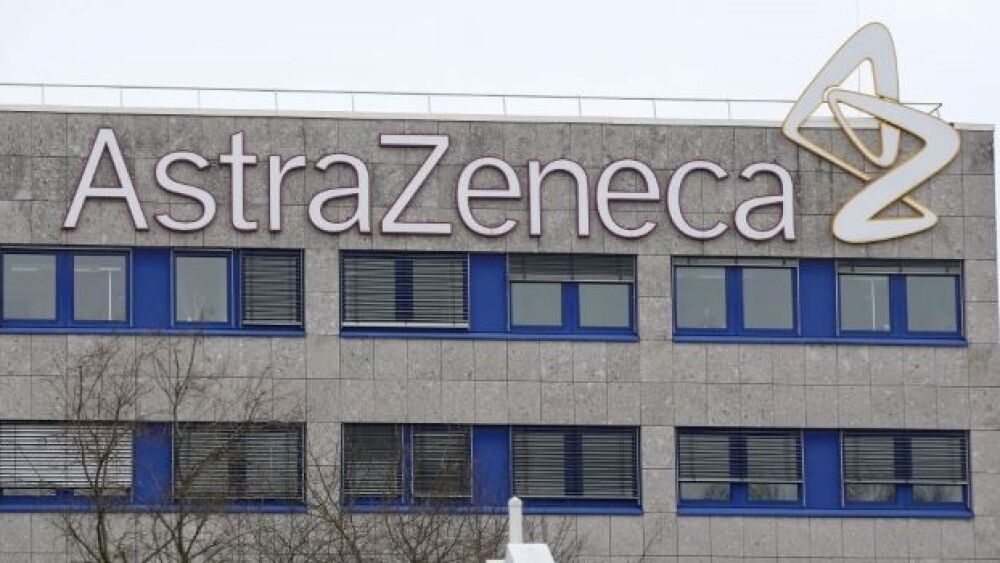AstraZeneca announced its plans to create a new, separate division for vaccines and antibody therapies, specifically its COVID-19 vaccine developed with the University of Oxford and other COVID-19 antibody treatments.
Bodo Marks/picture alliance via Getty Images
AstraZeneca announced its plans to create a new, separate division for vaccines and antibody therapies. The focus will be on its COVID-19 vaccine developed with the University of Oxford and other COVID-19 antibody treatments.
The new unit will be headed by Iskra Reic, executive vice president of Europe and Canada. It will combine research and development, manufacturing, commercial and medical teams.
“The team will be dedicated to our COVID-19 vaccine, our long-acting antibody combination and our developmental vaccine addressing multiple variants of concern, as well as to our existing portfolio for respiratory viral diseases,” the company stated.
Despite what appeared to be a head start on the vaccine in mid-2020, the AstraZeneca-Oxford COVID-19 vaccine is yet to be submitted for authorization in the U.S. The vaccine uses technology from an Oxford spinout company, Vaccitech. It deploys a replication-deficient chimpanzee viral vector based on a weakened version of a common cold virus (adenovirus) that causes infections in chimpanzees. It contains the genetic materials of the SARS-CoV-2 spike protein.
In the spring of 2021, the vaccine was linked to reports of blood clots, resulting in the suspension of its deployment in more than a dozen countries. The specific clotting issues were deep vein thrombosis and pulmonary embolism. The risk was relatively low, and the clots were rare, but it created delays in deployment and clinical trials around the globe. Some countries restricted its use in certain age groups as a result.
Despite those bumps in the road, the AstraZeneca-Oxford vaccine and its partner, the Serum Institute of India, have distributed more than 1.3 billion doses worldwide, particularly in countries where infrastructure limits the use of the Moderna and Pfizer-BioNTech vaccines, which require very low-temperature transportation and storage. The AstraZeneca-Oxford requires more traditional refrigeration.
The new division, initially reported by The Financial Times, suggests that AstraZeneca will continue marketing the vaccine beyond the pandemic period. AstraZeneca’s contract will then allow it to create a profit. However, one of the sources for the Financial Times story warned that there was no “significant additional investment attached to the restructuring.” But they speculate that it would allow AstraZeneca’s chief executive officer, Pascal Sorio,t to focus on more profitable businesses, such as oncology.
Yet another source indicated the new unit was “simply a pooling of resources and leadership for a number of assets in the portfolio and does not signal a direction of travel for the vaccine.”
On October 11, AstraZeneca reported high-level results from its Phase III TACKLE trial of its AZD7442, a long-acting antibody (LAAB) combination in COVID-19. The cocktail hit a statistically significant decrease in severe COVID-19 or death compared to placebo in non-hospitalized patients with mild-to-moderate symptomatic COVID-19.
In a prespecified analysis of patients receiving the treatment within five days of symptoms appearing, the cocktail decreased the risk of severe COVID-19 or death by 67% compared to placebo. It is administered by an intramuscular injection, which is significantly more convenient than other antibody therapeutics against COVID-19 requiring infusions.
“With continued cases of serious COVID-19 infections across the globe, there is a significant need for new therapies like AZD7442 that can be used to protect vulnerable populations from getting COVID-19 and can also help prevent progression to severe disease,” said Dr. Hugh Montgomery, Professor of Intensive Care Medicine at University College London and principal investigator of TACKLE. “These positive results show that a convenient intramuscular dose of AZD7442 could play an important role in helping combat this devastating pandemic.”
AstraZeneca submitted a request to the FDA for Emergency Use Authorization for the antibody cocktail for prophylaxis of COVID-19 on October 5.





